What’s Hiding in Your Laundry?

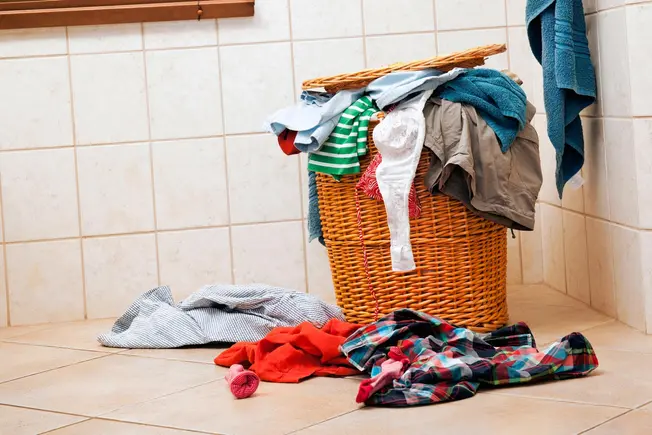
Laundry Day = Germ Day?
Some people let clothes sit in the hamper for weeks before they clean them. Some germs may survive for that long.
Viruses and fungi may die within days. But E. coli and salmonella, which can cause diarrhea, may survive a few weeks. Staphylococcus aureus, which causes staph infections on skin, may survive a month. If clothes are moist -- think sweaty gym clothes -- germs may breed in the hamper.
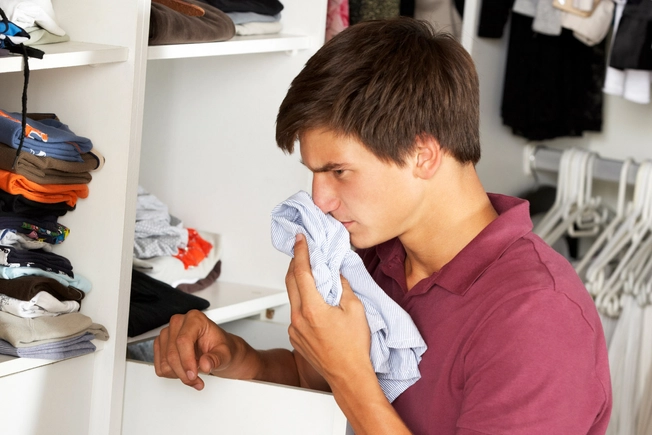
The Sniff Test Won’t Work
You might try to decide if something is dirty enough for the wash by its odor. But your nose can’t detect the scent of germs.
If clothes smell bad, it’s probably from sweat and body oils. Sweat itself doesn't have a smell, but body odor can be the result when bacteria on the skin breaks down the acids in the sweat. It's the bacteria waste products that produce the smell.
When in doubt, wash it.
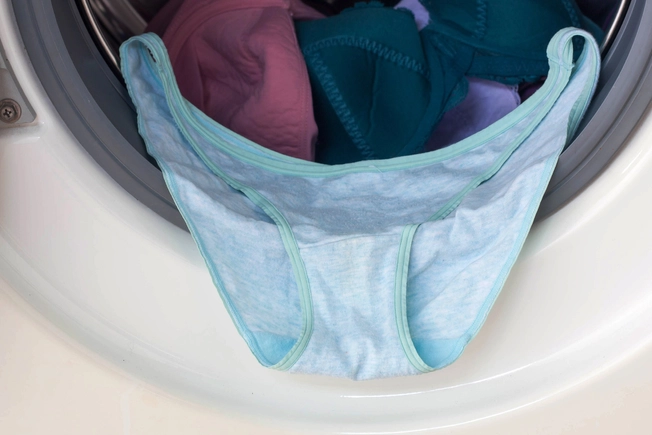
The Dirtiest Laundry Garment?
Underwear contains the most germs. This is because it comes in contact with your genitals and anus. As a result, it can contain fecal bacteria and germs from genital infections, like yeast.

Kids’ Clothes Can Be Especially Germy
Children can pick up germs from plenty of places that you might not expect, like car seats, your cellphone or tablet, sports equipment (including mats), lunchboxes, backpacks, and pet toys.
To minimize the spread of those germs in your family, wash your child’s clothes in a separate load.
It’s also helpful to do a separate wash when someone in your household has diarrhea or a cold.
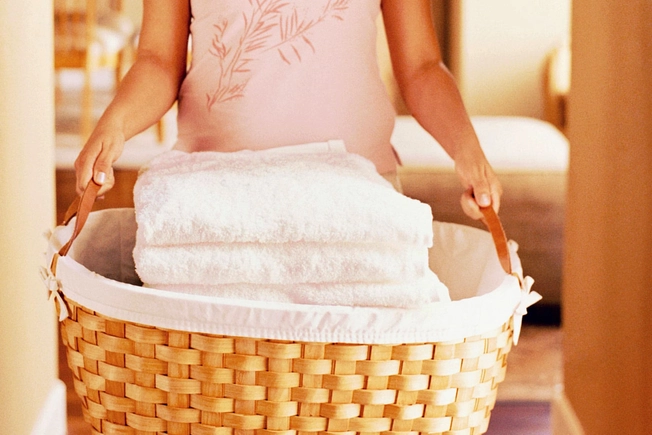
Keep Towels Separate
You may not want to toss used towels in with your dirty clothes: Towels tend to contain more germs than clothing. Since towels are so thick, they stay damp longer. That can allow germs to survive. Dish towels that come in contact with raw meat can have salmonella and E. coli. Bath towels can pick up E. coli and other fecal bacteria.

Touching Laundry? Wash Your Hands
When you load dirty laundry into the washing machine or move damp items to the dryer, you get germs on your hands.
Wash your hands whenever you touch laundry. That’ll lower the chance that you’ll get sick. You’ll also be less likely to spread the germs around your home, which can help keep your family safe from illness, too.
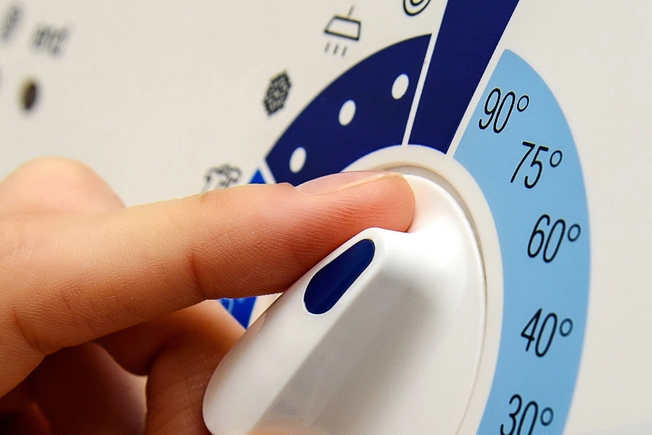
The Best Way to Clean Clothes
To kill the germs in your laundry, wash your clothes on the hot cycle, then put everything in the dryer for 45 minutes.
Wash whites with bleach, and use peroxide or color-safe bleach for colors.
Do your laundry in water that’s at least 140 F to kill any viruses or bacteria.
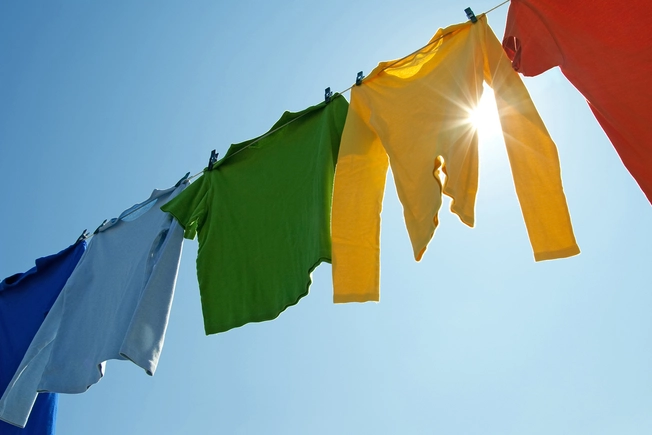
Sunlight Can Kill Germs
If you need to line dry certain things, the best place to hang them is outdoors, not on an indoor laundry rack. The ultraviolet rays from sunlight should kill any germs still on your clothing. But drying your clothes outside may get pollen on them. That can be a problem if you have allergies.
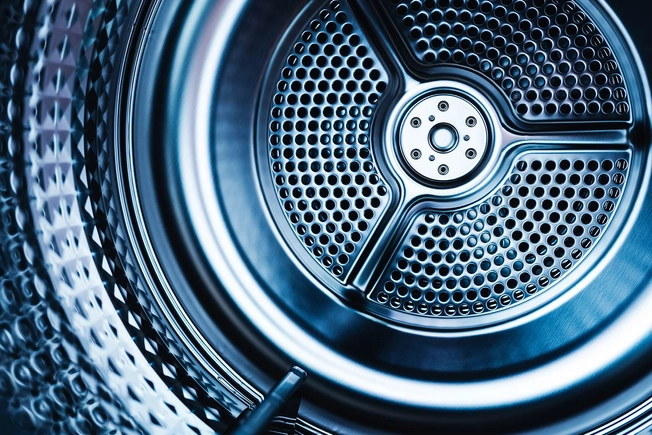
Clean Your Washing Machine
Germs from your clothes may stay in your washing machine and spread to your next load of laundry. If water pools in your machine between loads, germs may breed there, too.
About once a month, to kill germs that lurk, run the machine with nothing in it but chlorine bleach. If the clothes you wash are extra dirty or you live in a hot, humid area, you may want to do it more often.
If your next load of laundry is colors, run the machine empty again, this time with nothing but water, so any leftover bleach won’t ruin your colored clothes.
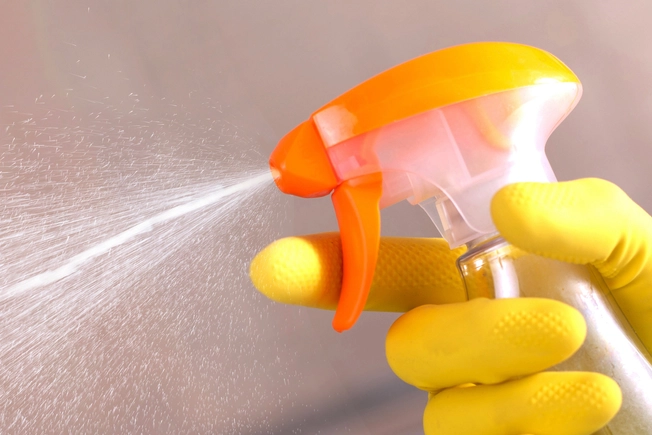
Sanitize Your Hamper
Each time you take your clothes out of the hamper, clean the inside of it with a disinfectant spray. It’ll minimize the number of germs that will hang around there. This can make illness less likely.
IMAGES PROVIDED BY:
1) Fertnig / Getty Images
2) monkeybusinessimages / Getty Images
3) photocheaper / Getty Images
4) Buccina Studios / Getty Images
5) PictureNet Corporation / Getty Images
6) west / Getty Images
7) Vladimir Zubkov / Getty Images
8) Studio Light and Shade / Getty Images
9) ByoungJoo / Getty Images
10) Jevtic / Getty Images
SOURCES:
Philip Tierno, PhD, clinical professor of microbiology and pathology, NYU School of Medicine.
Chuck Gerba, PhD, professor of microbiology, University of Arizona.
NHS: “Can clothes and towels spread germs?”
Journal of Applied Microbiology, June 2001.
Applied and Environmental Microbiology, July 2007.
Children’s Healthcare of Atlanta: “5 Surprising Places Kids Pick Up Germs.”